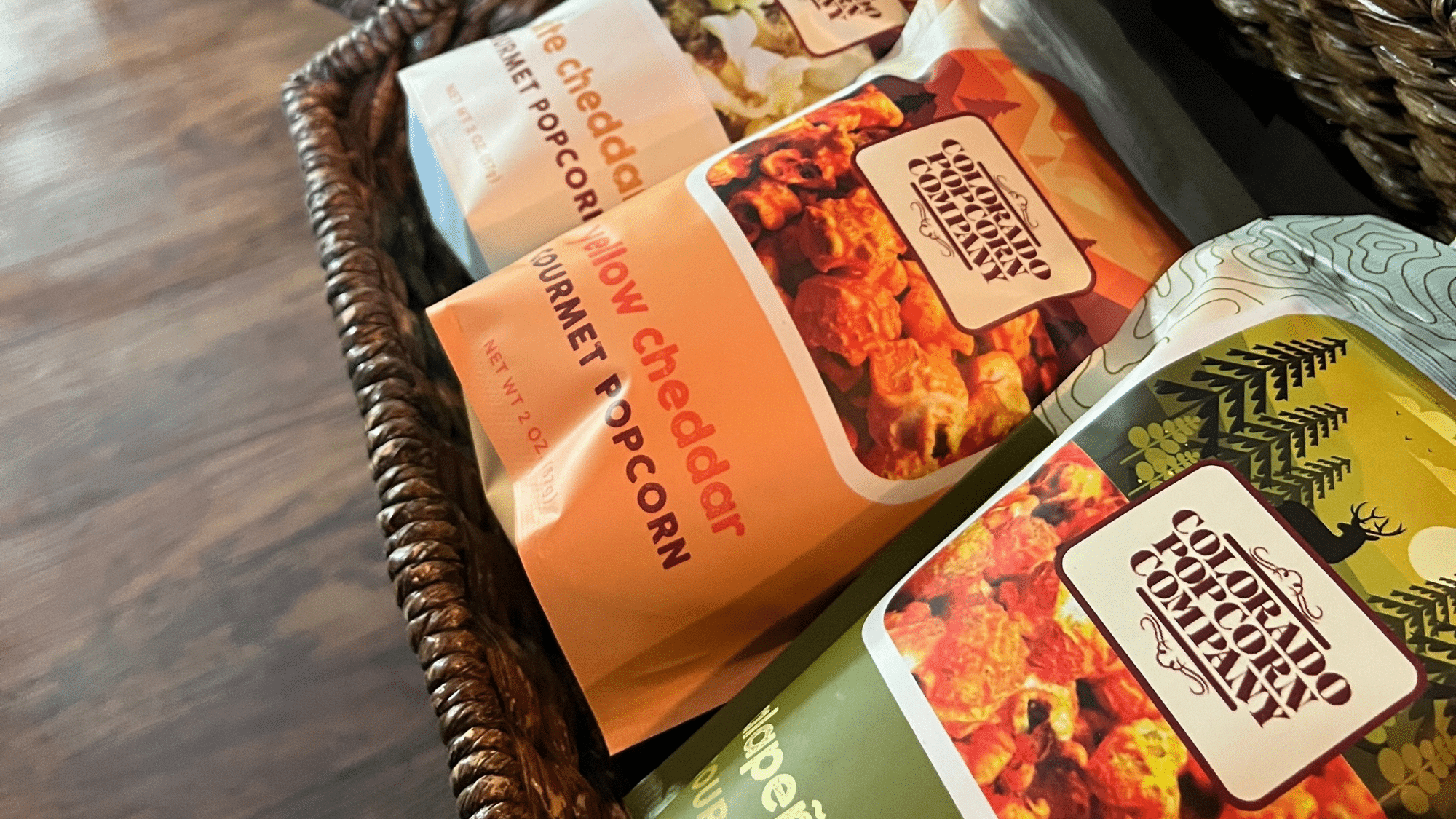What makes popcorn pop? Expansion.
When a kernel warms up, the moisture inside builds pressure until it bursts open, transforming into something entirely new (and tasty). Apply that same principle to business, and you’ve got the story of Colorado Popcorn Company. What started as a small, family-run snack brand is transforming under new ownership into a modern, efficiently operated business with international reach.
Located in Sterling, Colorado, Colorado Popcorn Company has a deep origins. The company officially opened in 1987, though it is believed that the business had been making and distributing popcorn locally even before then.
“I was born and raised in Sterling,” said CEO, Tyler A. Kelsch. “I was just young enough that I don’t remember.”
Kelsch purchased the long-running business in 2017 with his son-in-law Zachary Souffrant and daughter, Breanna. Souffrant would soon be graduating from the University of Northern Colorado and was looking to begin his entrepreneurial journey. While interning at Colorado Popcorn Company, he learned that the original owners were planning to retire. When he shared his interest in taking over the business, Kelsch stepped in to help finance the purchase and relaunch the company under new ownership.

Now the family runs the popcorn business together: Tyler as CEO, Souffrant as Managing Partner, and Breanna as co-owner. Transitioning the company to a new, but still small, team allowed them to preserve their local roots while modernizing the business and laying the groundwork for growth.
Bringing Business Operations Up to Speed
Upgrading Colorado Popcorn Company’s digital presence was the first order of business. The original website functioned mostly as a static landing page that directed customers to call the store. The new team transformed it into a full e-commerce site, allowing them to quickly expand their direct-to-consumer sales.
That in itself bumped sales enough so that the new team needed to come up with a way to streamline their growing production process. This led them to look towards automation, but it wasn’t without a lot of questions:
How much equipment should they get? Where should they put it? “How big is the equipment so that we’re making batches that are appropriately sized for our sales volume, and then getting the production process down as much as possible?” he says.
They wanted to keep their “small batch” identity, so they invested in equipment that streamlined only the packaging process. The new machine weighed, filled, and sealed bags—eliminating repetitive tasks while preserving their hands-on approach. This upgrade freed the team to focus more on running and growing the business.
As an added benefit, Logan County’s designation as a state Enterprise Zone allowed them to apply for tax credits on advanced equipment investments.

Once the new equipment was up and running, the team turned their attention to expanding the wholesale side of the business. They installed a new interface on their website that allowed existing wholesale customers to place orders on demand and partnered with two distributors to broaden their reach. These upgrades helped them retain current accounts while attracting new ones in niche markets—from Coors Field to Denver International Airport to orthodontist offices.
“We’ve probably got 75 or 80 orthodontists that routinely buy the popcorn as their little sweet treat for the kid,” Kelsch said. “So, those are the types of things we’ve done to build brand awareness.”
All this has resulted in a huge increase in sales and marketing to a large swatch of clients. It could be said that, simply, the website and the new machinery might be the reason Colorado Popcorn Company’s popcorn business is pop’n.
When Kelsch and the Souffrants took over the company, production was limited to just a few batches a week—about 450 bags in total—and annual sales hovered around $75,000. Today, thanks to improved packaging, e-commerce growth, and expanded wholesale operations, the company produces between 70 to 100 bags per run and is expected to generate $300,000 in annual revenue this year.
During that time, the team expanded their online business operations by beginning to manufacture and distribute the Too Haute Cowgirls brand in 2020, later purchasing it outright in 2022. The addition allowed them to reach a higher-end audience with premium ingredients—like chocolate and nuts—and a wider range of specialty flavors.
Finding and Building Opportunities to Stay Local
Like many who grow up in rural towns, Kelsch left Sterling after high school and college, not returning for nearly two decades. So when his daughter and son-in-law expressed a desire to stay in the community after graduation—and even revitalize a long-standing local business—it felt like the perfect opportunity to bring both family and economic growth back home.
Colorado Popcorn Company remains a small-town, family-run business with all the ups and downs that come with it. There are disagreements, hiccups, and setbacks—proof that, at the end of the day, they’re still human.
“I think there’s just that whole spirit in this,” Kelsch said. “Of, you know, small town entrepreneurs, trying it out… we took the shot at the brand and that the recipes and everything being a viable business if we were able to expand its market and its market reach.”
So far, Colorado Popcorn Company seems to have found a winning recipe for sustainability and growth—staying true to their rural roots while continuing to expand… “POP!”
This story was produced in partnership with the Logan County Economic Development Corporation in Sterling, Colorado.
Written by Jennaye Derge and Margaret Hedderman
Join us in empowering rural entrepreneurs and ecosystem builders to achieve even more in 2025. Contributions of any amount directly power our mission to build a sustainable statewide network of resources supporting rural entrepreneurs, so that people and places can thrive and chart their own futures! Will you help us?





